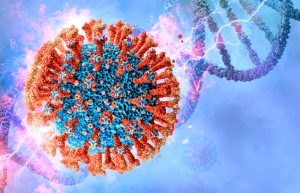What is caffeine?
Caffeine is a stimulant naturally found in tea, coffee, and cacao plants, that stimulates the brain and central nervous system to keep you alert. It is often referred to as a psychoactive drug.
Apart from natural sources, it can also be added to beverages to make caffeinated sodas, and energy drinks. These beverages tend to exert their effects on the body soon after consumption. Once consumed, caffeine is absorbed from the gut into the bloodstream, where it travels to the liver and is broken down into compounds that can affect the function of various organs. The principal effect is on the brain, where it can block the effects of adenosine, a neurotransmitter that relaxes the brain and causes fatigue.
Through the course of a day, adenosine levels build up which makes us increasingly tired and sleepy. Caffeine targets adenosine receptors in the brain, and prevents their activation and blocks their effects. This helps us stay awake and reduces fatigue.
It is also thought that caffeine increases the levels of adrenaline in the blood and increases the activity of dopamine and norepinephrine. This results in further stimulation of the brain; promoting a state of arousal, alertness, and focus.
How much is too much?
According to studies, it is safe for healthy adults’ to consume up to 400 milligrams (mg) of caffeine daily. However, pregnant women and lactating mothers are recommended to lower their daily levels to less than 200 mg.
Popular beverages like coffee, soft drinks, and energy drinks can contain between 20 to 720 mg of caffeine in every 240 millilitres (ml) serving. Additionally, dark and milk chocolates, some medications, and even weight loss supplements may contain some amounts of it.
Benefits
- May boost metabolism and fat burning: As caffeine can stimulate the central nervous system, it is thought to enhance the rate of metabolism which leads to fat loss.
- Enhancing exercise performance: Caffeine utilises fats as fuel and preserves stored glucose levels for longer periods. Apart from this, it improves muscle contractions therefore increasing tolerance to fatigue.
- May protect against heart disease and type-2 diabetes.
- Studies have found that people who drink coffee regularly have a lower risk of developing Alzheimer’s and dementia.
- May reduce the risk of liver cirrhosis, decrease the risk of premature death, and lower the risk of skin cancer, liver cancer, and colorectal cancer.
- May increase gut health by promoting the growth of good gut bacteria.
Side effects
Caffeine provides no nutritional value on its own. Overconsumption can lead to:
- Headache
- Insomnia
- Anxiety
- Irritability
- Frequent urination or inability to control urination
- Rapid heart rate
- Muscle tremors
Drinking caffeine during the day may hamper sleep and cumulative sleep deprivation can decrease daytime alertness and performance.
In extremely rare cases, overdose can occur. Symptoms that indicate an overdose may include:
- Confusion
- Hallucinations
- Vomiting
- Increased or abnormal heartbeat which may lead to difficulties when breathing
In rare instances, overdose may also result in death due to convulsions or irregular heartbeats.
Effects on various body systems
Effects on the digestive and excretory systems
Caffeine increases the amount of acid in your stomach which may cause heartburn or an upset stomach. An increase in the frequency of urination is also common.
Effects on the circulatory and respiratory systems
Caffeine can increase blood pressure for short periods of time and it is thought to be caused by either an increase in the level of adrenaline or a brief blockage of the hormones that widen the arteries.
Consumption has also been found to cause no long-term effects on blood pressure. However, if you have irregular heart rhythms, consumption of caffeine may make your heart work harder.
Effects on the skeletal and muscular systems
Caffeine in large amounts may interfere with the absorption and metabolism of calcium. This can lead to thinning of the bones, a condition commonly known as osteoporosis. Consumption in excess amounts may also cause twitching of the muscles.
Effects on the reproductive system
As caffeine can travel within the bloodstream, it can cross into the placenta and can increase the developing baby’s heart rate and metabolism. As such, overconsumption is associated with delayed foetal growth and an increased risk of miscarriage.
Regular consumption of a fixed amount of caffeine creates a tolerance level that is also determined by other factors such as age, weight, and health.
Caffeine withdrawal is common amongst people who regularly consume caffeine and abruptly stop drinking any beverages containing it. Headaches are the most common symptom associated with. withdrawals.
Other indications of caffeine withdrawal may include:
- Nervousness
- Irritability
- Sleepiness
- In rare cases: tremors
Symptoms are usually mild and the person affected will recover in a few days.
In order to change your consumption habits while not experiencing caffeine withdrawal symptoms, you should cut back on your daily consumption quantity gradually and opt for decaffeinated drinks.
Closing thoughts
For most adults, drinking coffee has became a part of their daily life. Amount of less than 400 mg of caffeine daily is not likely to pose any health problems. However, it is important to be aware of the possible side effects of caffeine, the overdose symptoms as well as the possible outcomes of caffeine withdrawal.













